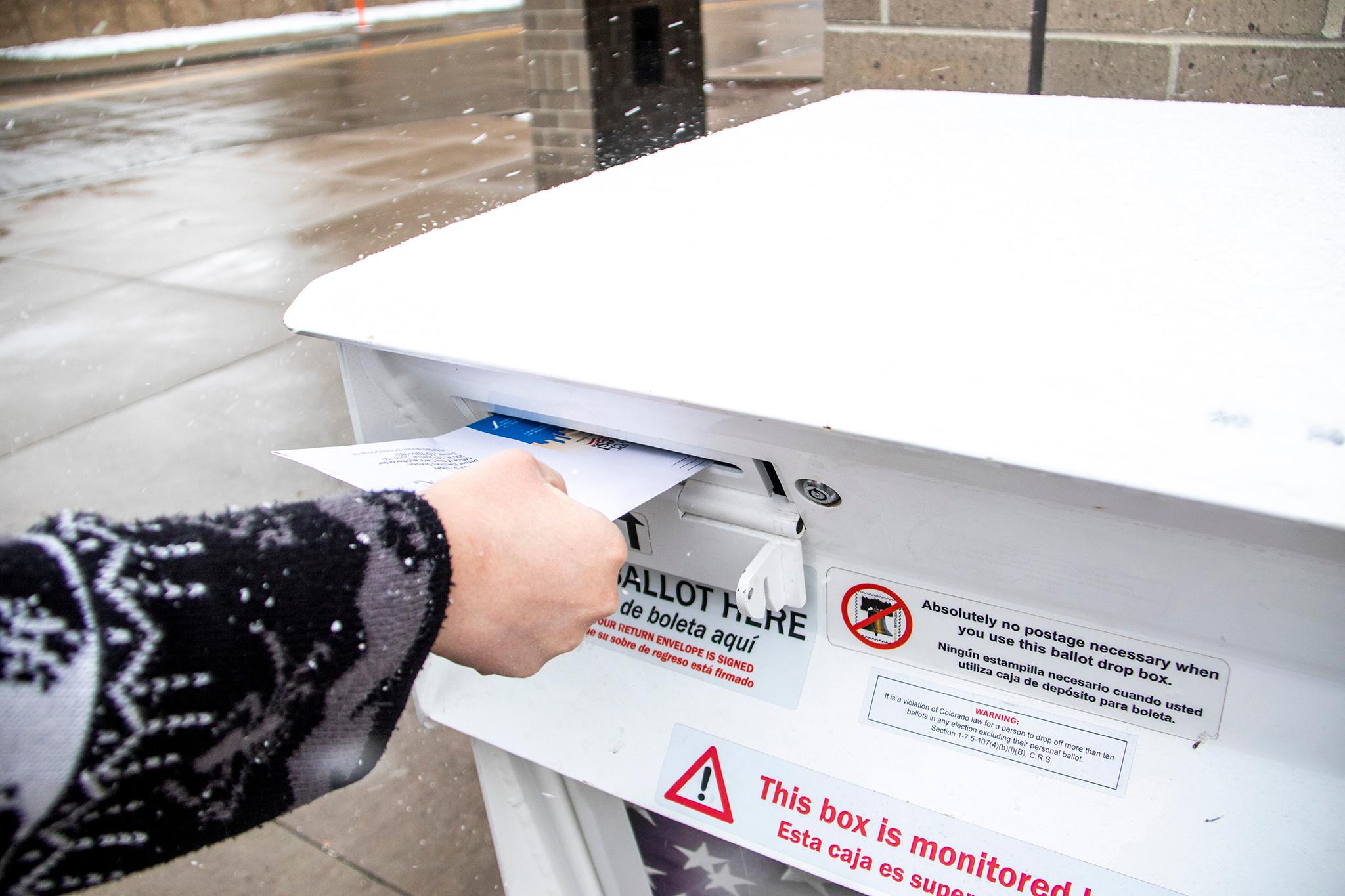
An effort to fundamentally change Colorado’s election system faces a significant new legal obstacle created by Democratic lawmakers.
The supporters of Initiative 310, which would institute ranked choice voting and eliminate partisan primaries for Colorado elections, are just beginning to gather signatures from voters. But even if they succeed in passing the measure this November, their ultimate goal may be delayed or blocked by a law signed by Gov. Jared Polis Thursday.
The new law includes strict new requirements about when — and whether — the state can ever adopt the changes proposed in Initiative 310. But even as he signed the law, the governor promised to obey the will of the voters and to try to ensure that the ballot measure is enacted within four years, assuming it passes.
Under the bill Polis just signed, ranked choice voting and “all candidate” primaries can’t be instituted unless local governments in a dozen Colorado counties independently decide to make similar changes first. So, even if voters approve the big election changes this November, there’s little chance that the state could legally implement those changes anytime soon.
The delaying provision was added at the eleventh hour to a much broader bill. The bill also contains numerous tweaks and changes to help Colorado clerks prepare for the upcoming election. In a statement, Polis said that he was signing the new law because he supported those other goals.
“SB24-210 contains important provisions to ensure the safe, efficient, and trustworthy administration of the 2024 and future elections, and I appreciate collaboration from bipartisan legislators, county clerks, and other interested parties on those aspects of the law,” he wrote.
However, the governor went on to criticize the way that the law could outflank the ranked-choice voting proposal. He said the blocking amendment was added at the last minute and without proper input from stakeholders.
Polis said that if Initiative 310 passes, he would convene lawmakers, voting rights organizations, election officials and the measure's backers. He said it was his "commitment" to ensure the measure's goals are implemented by 2028, which would be two years after the date set in the initiative.
Polis wrote that if Initiative 310 passes this fall, it “will be essential to reconcile the [newly signed election] bill with the [election reform ballot] measure and to take prompt and good faith actions to successfully implement the will of the voters.”
Essentially, even as Polis signed the new law, he said he would work to override part of it. Senate President Steve Fenberg and House Speaker Julie McCluskie, similarly said they would "always work in good faith to uphold the will and intent of the voters on a practicable timeline, while taking into account the very real and legitimate implementation issues identified by our local election administrators.”
However, passing a future law to undo the new legal obstacle would also require gathering support from dozens more lawmakers -- so, it is no sure thing.
Democratic Rep. Emily Sirota said she had introduced the delaying amendment because of concerns from county clerks and others about implementing such a big change so quickly.
“We are being responsible in the way that this gets rolled out if, in fact, it does pass at the ballot,” she said in an earlier interview. “It's not creating roadblocks for ranked-choice voting, it is just rolling it out in a more responsible way, so that our clerks have time to learn and to adapt.”
The delaying amendment was introduced late in the legislative session and passed in less than a minute, with no apparent objections or debate from any lawmakers. The Colorado Sun was first to report on the amendment.
In a statement, the campaign for Initiative 310 said it was disappointed by “today’s outcome,” and that it would continue fighting “in the courts, across the state, and at the ballot box,” for their cause. Initiative 310 is backed by Kent Thiry, the wealthy businessman who previously backed changes to Colorado’s legislative redistricting process, among other causes.
Unite America, a group supporting the ballot measure, praised Polis for his pledge to enact the proposal if it passes.
A sizable group of organizations has come out in opposition to Initiative 310, with members from labor groups like the Colorado AFL-CIO to nonprofits representing a diverse set of communities.
The group warned: "The proposed ballot initiatives backed by monied-interests, would make confusing and hasty changes to Colorado’s election methods, creating a narrow window of time for implementation to ensure that elections are properly administered, and voters aren’t disenfranchised. It would be foolhardy and dangerous to trap new, untested methods into Colorado’s election systems where results would be difficult to audit and there would be a limited time to educate voters."
Senate Minority Leader Paul Lundeen, a Republican, said he “vigorously opposed” the idea of delaying Initiative 310. If it passes, “I will participate in a process with all sides, including proponents and implementers, to uphold the will of the voters in a responsible way for Colorado,” Lundeen said in a written statement.
Editor's note: This article was updated June 6, 2024, with further comment and information.









